There are some movies you love for all the wrong reasons. Bus Riley’s Back in Town is one of those films for me. Not because it’s any good. Or even trashy fun in a good/bad movie way. It’s just a movie that had such possibilities but was so interfered with by Universal Studios it turned out to be this weird, glossy mess of a film that ultimately fascinates me. A beautiful, digitally restored Blu-ray has just been released by Imprint and I am thrilled to own it. It’s last incarnation on home video was an awful pan-and-scan VHS.
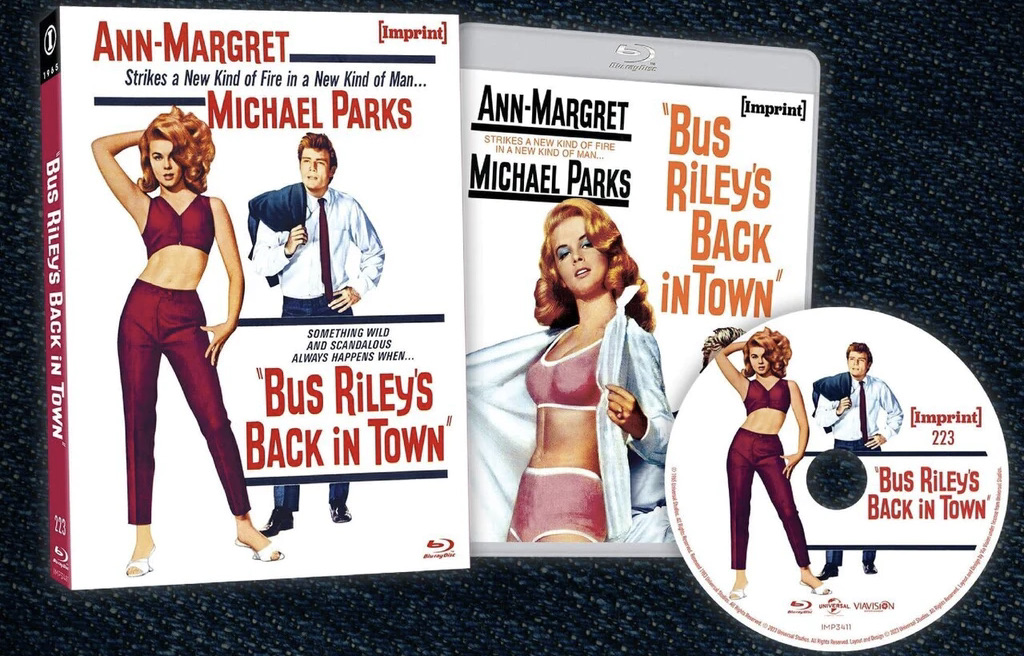
And besides, it’s based on a one-act play by William Inge, one of my favorite authors. Inge was born and grew up in Kansas, and is best known for plays that reflected the dreams and desires of the people he grew up alongside of. In the 1950s he had a string of critically acclaimed and popular Broadway shows like Picnic, Bus Stop, The Dark at the Top of the Stairs, Come Back Little Sheba. He wrote the original screenplay for the unforgettable Splendor in the Grass and All Fall Down. (He had yet to write two amazing novels- Good Luck, Miss Wyckoff and My Son is a Splendid Driver). But he was also a tormented soul, and when his new plays ran out of favor he took to drink and pills and eventually committed suicide by locking himself in the garage, sitting in his Mercedes-Benz and turning on the engine.
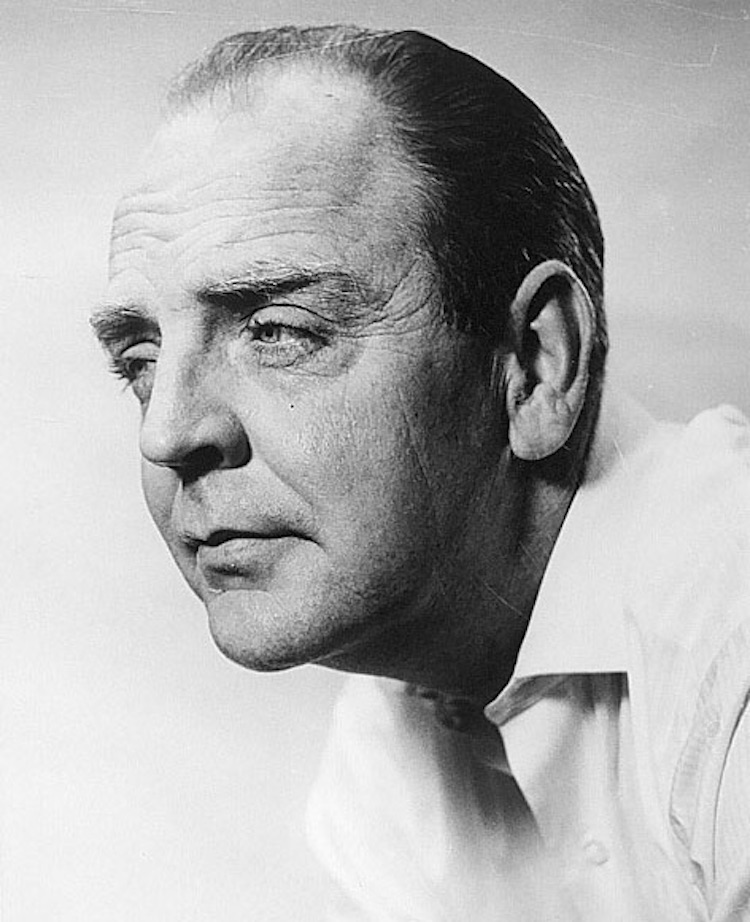
When he was asked to expand the one act play of Bus Riley’s Back in Town into a feature film it was during a low period in his life. His last play Natural Affection, directed by Tony Richardson, and starring the great Kim Stanley, opened on Broadway during a newspaper strike and afterwards bad reviews quickly closed the show. So, he threw himself into this film adaptation which turned into a huge nightmare when Ann-Margret was cast as one of the leads. Ann-Margret was coming off of Viva Las Vegas, and the studio was pushing her sexy, Kitten with a Whip quality. They kept forcing William Inge to keep beefing up her character in the film completely out of proportion. Inge was distraught because the movie was about Bus Riley, and he walked off the set once but reluctantly returned to finish the movie hoping to mitigate the changes. There was a test screening of the film that went over well, and Inge was slightly relieved. But then Universal brought in other writers to create all these new scenes with Ann-Margret without Inge’s knowledge and when he found out he had his name taken off the credits. (Walter Gage is the name attributed to the screenplay).
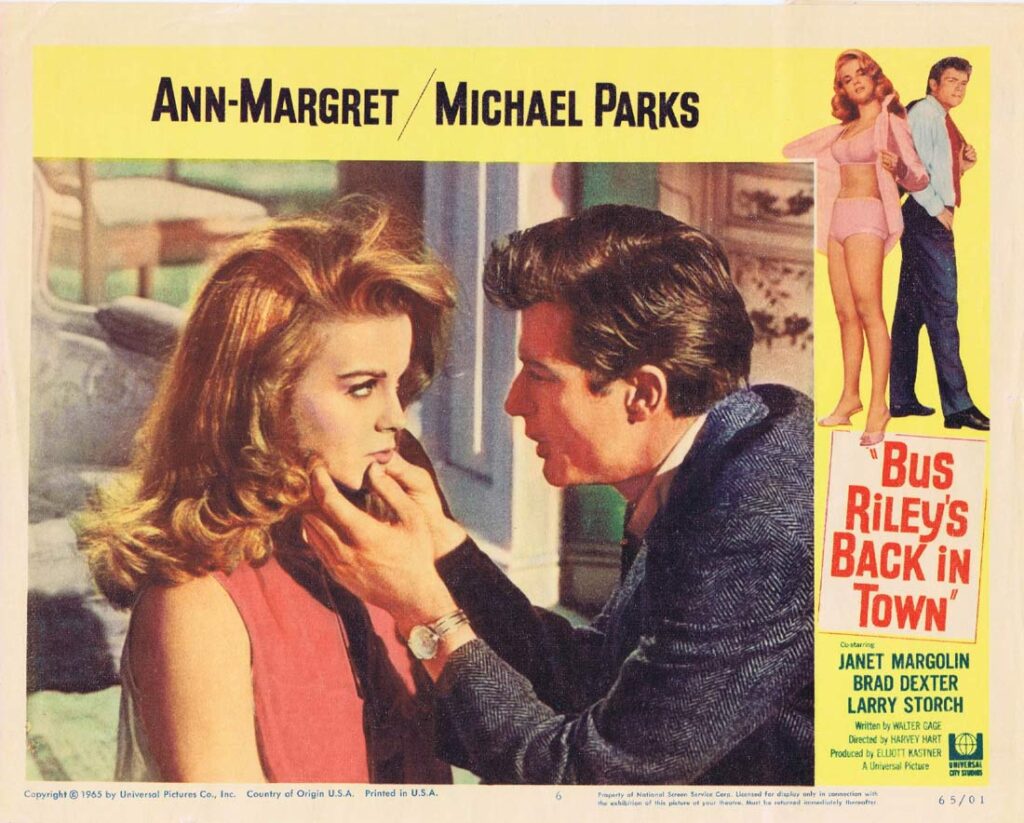
In Ralph F. Voss’s excellent biography A Life of William Inge, “Bus Riley was a character that fascinated Inge. Like Turk in Sheba, Hal in Picnic, Bo in Bus Stop, and several other of Inge’s male characters, Bus Riley is young and muscular, the sort of athletically trim male who is attractive to women and homosexual men…” Inge never quite reconciled with his own homosexuality during his troubled life.
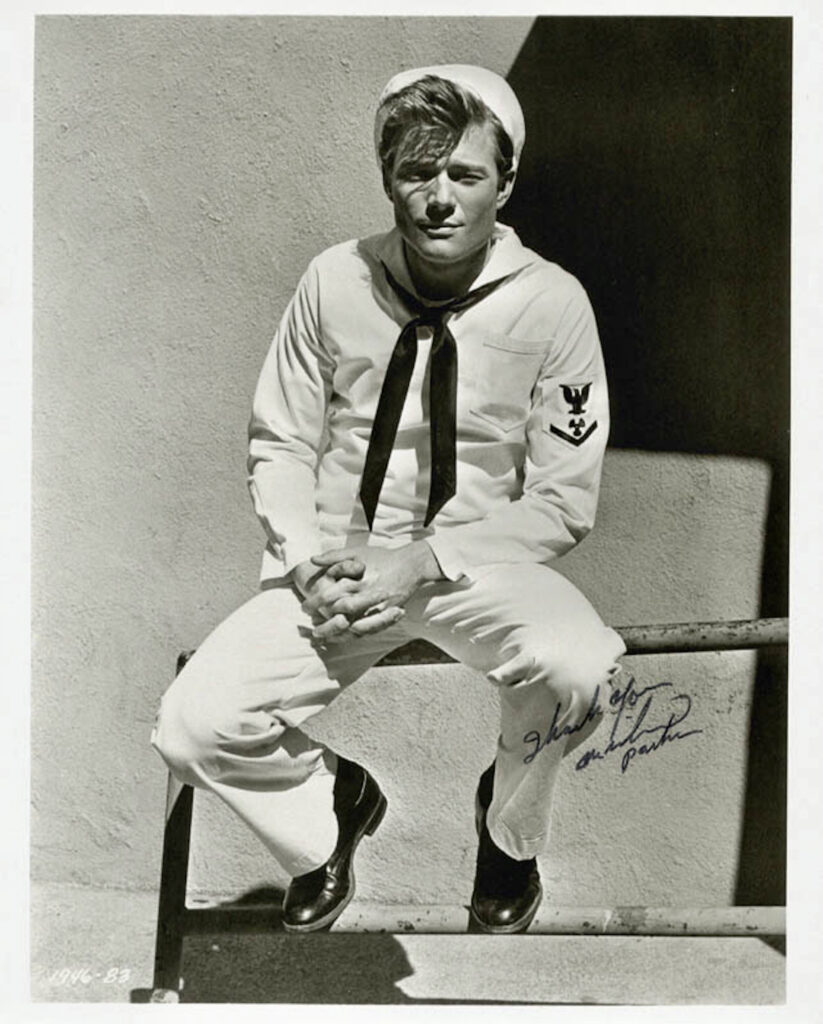
The film opens with Bus Riley (Michael Parks) getting off a bus in his sexy Navy whites after being away three years. Right away you can tell the tone of the movie is off- the film has the flat look of a TV movie and the musical score is this peppy, upbeat slop more suited to a Doris Day comedy than a brooding drama. Riley’s loving mother is warmly played by Jocelyn Brando, his adoring young sister by Kim Darby, his annoyed other sister Mimsy Farmer. In a typical Inge trope there’s a neurotic spinster schoolteacher (Brett Somers) boarding at the house and the sight of a shirtless Bus drives her to have hysterical headaches. Bus then finds out his ex-girlfriend Laurel (Ann-Margret) has married a much older, wealthy man.
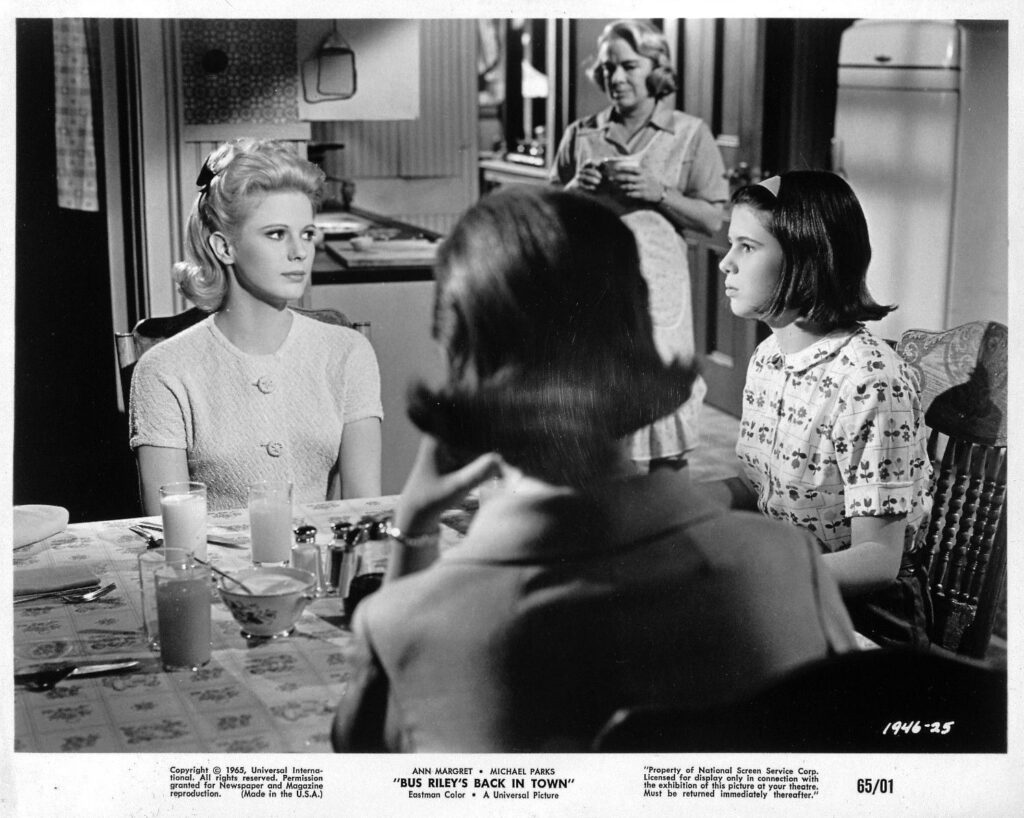
Bus thinks he has a job waiting for him at the local mortuary. But the owner and friend Spencer (Crahan Denton) puts a hand suggestively on his knee, saying “I’m a lonely man, Bus.” To be honest, the scene is actually handled better than you’d think. Later when Bus runs into Spencer at a funeral he is still friendly with him. He ends up taking a job selling vacuum cleaners door-to-door to horny, lonely housewives.
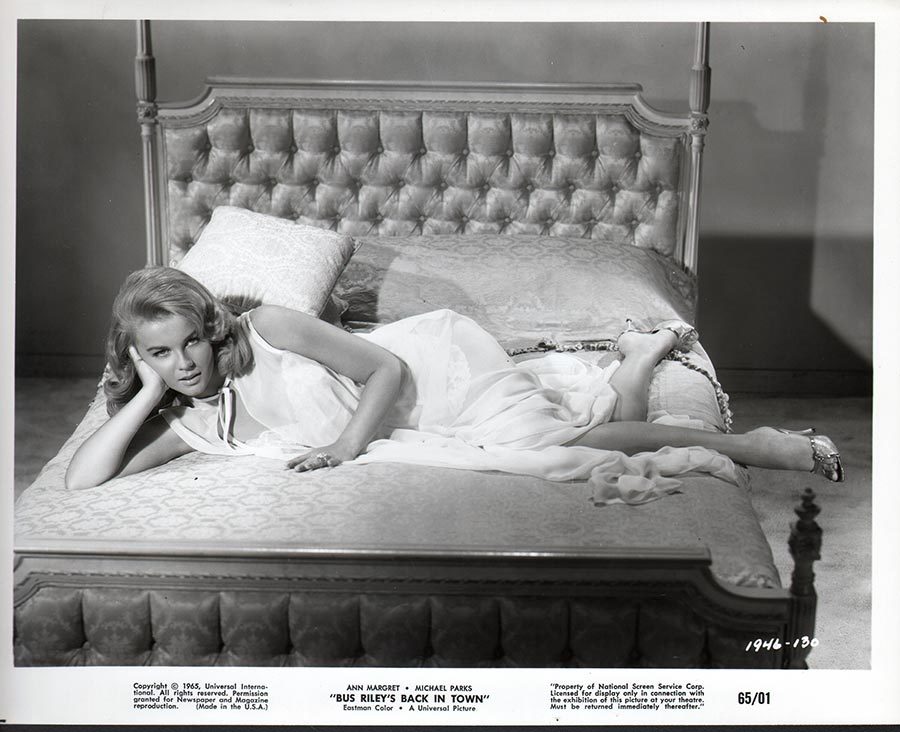
Meanwhile, bored Laurel, whose husband is always flying away for work, chases Bus all over town and gets him back to her mansion, bites his hand and jumps fully dressed in the pool. He leaps in after her and they begin spending nights together, but he isn’t happy. “We make love over and over again and we never get anywhere.”
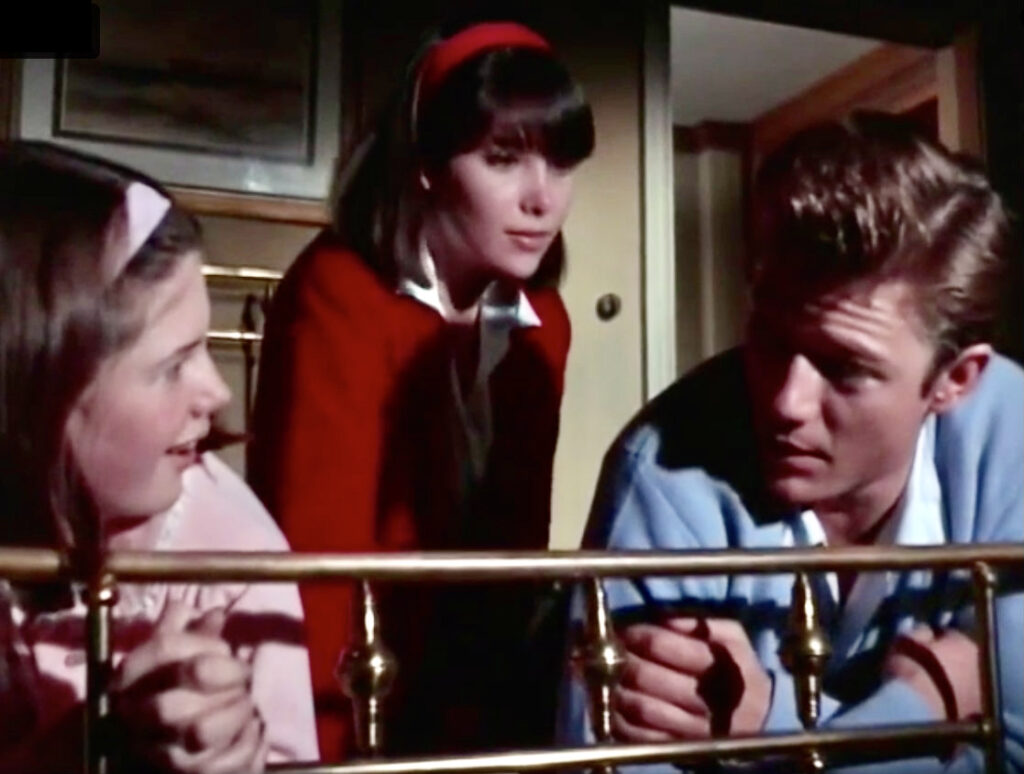
The best scenes in the movie are with lovely Janet Margolin, who plays his younger sister’s best friend Judy. She lives with a boozy mess of a mother and Bus confides to Judy about the anger he also felt with his own alcoholic father (who spent all the money Bus had saved for college on booze).
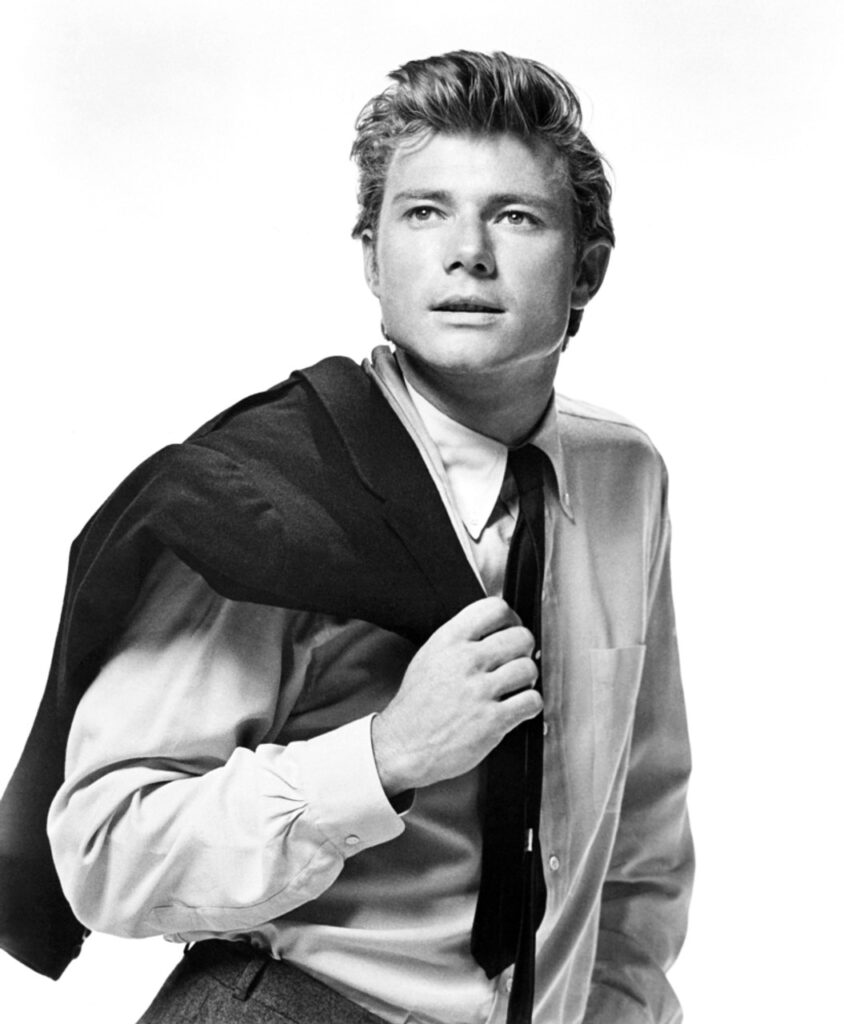
But the focus keeps shifting to Ann-Margret when it should be on Bus. Poor Michael Parks tries his best. He was always called a James Dean-clone but he’s really a very good actor- he was great on the TV show Then Came Bronson and in some later films like Wild Seed which hinted at his potential. He’s slightly Method-y here but looks drop-dead gorgeous and seems genuinely like a sweet soul in the film. Fortunately, in later life, directors like David Lynch and Quentin Tarantino came to his rescue and he really got to show what he had in him. But here we never know what the hell kind of a movie it’s trying to be. That being said, I still get a big kick out of it, somehow. It isn’t Ann-Margret’s fault either. She’s actually quite fun in scenes where she slow dances across a crowded bar in Bus Riley’s direction, or rolling yarn to a bored cat on her bed or preening at her vanity table, erotically reapplying her lipstick. Supposedly the original cut of the movie made her even nastier, but Universal Studios was too panicked about their long-range plans for her to have the teens of America see her as a spoiled rich bitch in heat.
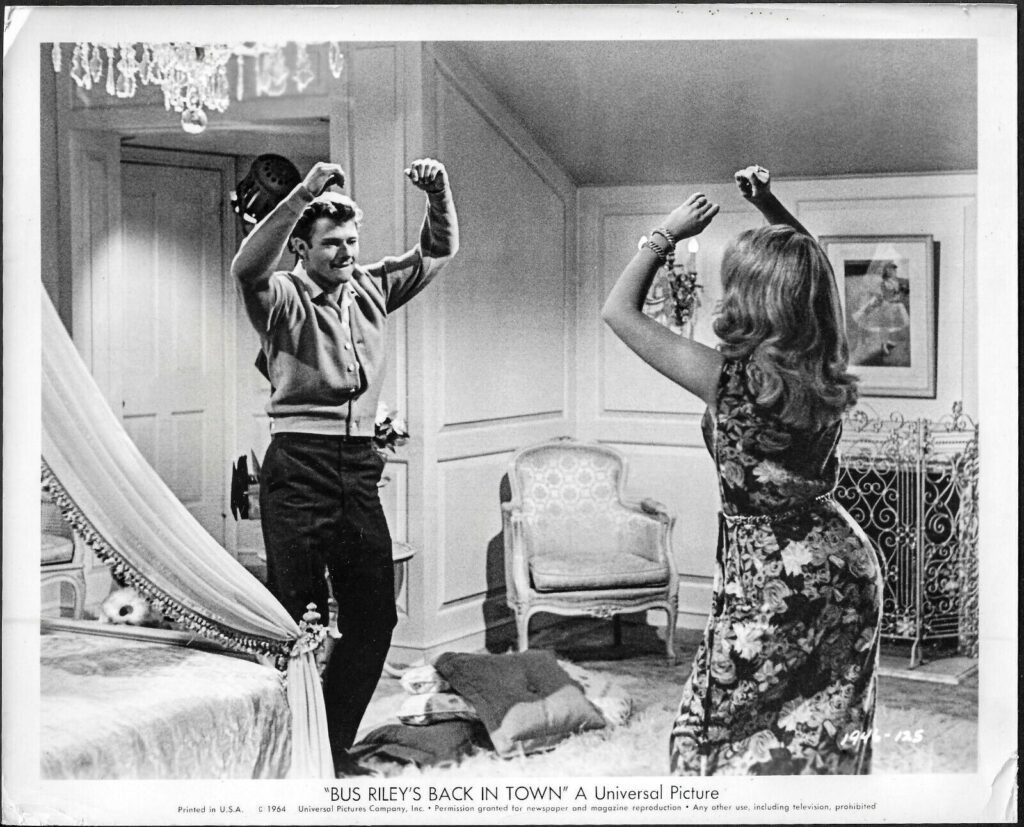
I get rankled when there is a revival of one of William Inge’s plays and modern critics complain that Inge is dated and irrelevant. How can plays with such poetry and power ever be dated? Yes, when Inge wrote them he captured a bygone time set in the heartland of America. But his characters- their longings, their tragic dreams- have never aged. They are as heartbreakingly relevant as they ever were.
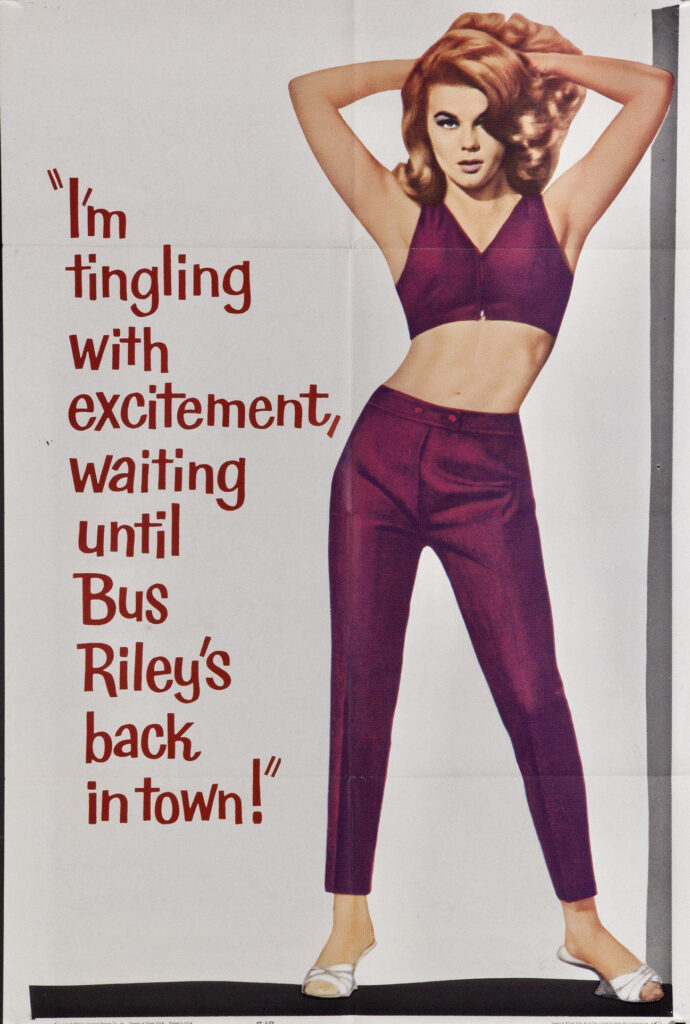

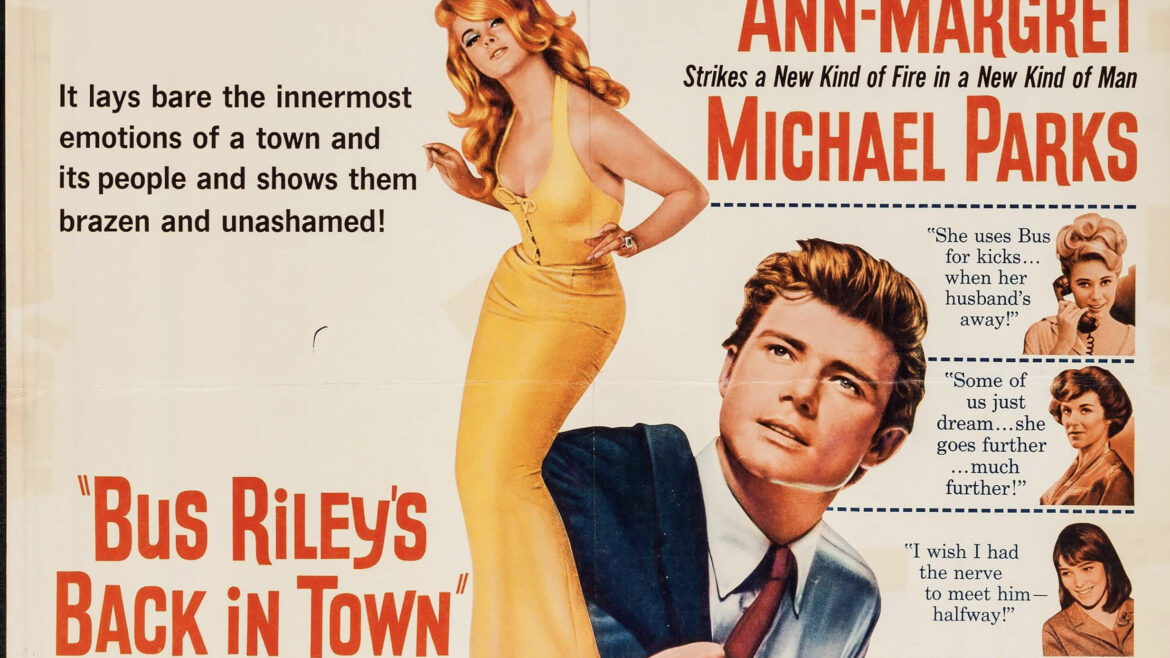
Have never seen this one. The Hollywood backstory is really something. I love Inge. Do you know he has a short play titled “Bad Breath”?
So glad you are an Inge lover. I’ve always adored him. Someone whose senses so correctly the essential pain of living, which never changes over the decades, ever be irrelevant?
The entire cast is fine- so is the film, (which reminds me of Inge’s ”Picnic”) But, the big draw for me, is the appearance of Mimsy Farmer in her third movie. Her part is not significant, but she holds her own -and looks lovely doing it!.